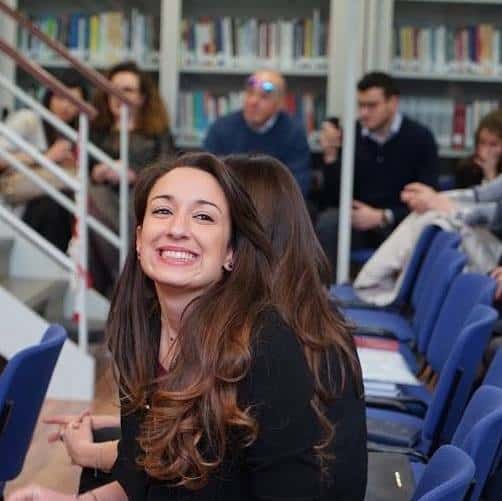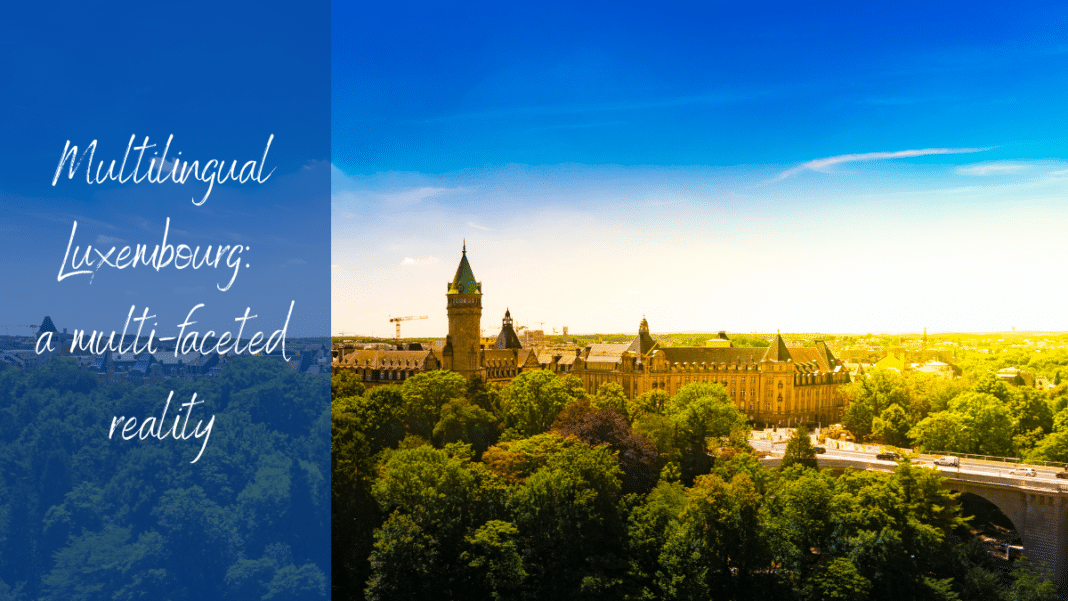The multilingual population of Luxembourg
Luxembourg is a small nation located in Western Europe, bordered by Belgium, Germany and France. It has a surface of 2586 square kilometres, and it is one of the smallest European sovereign states (“a state with a defined territory that administers its own government and is not subject to or dependent on another power”). Despite this geographic feature, it is densely populated. The total of Luxembourg’s population adds up to about 590,321 residents.
According to the statistics, amongst them, only 308,919 are Luxembourgers, while 281,748 have a foreign nationality. That is to say, foreigners make up 47.7% of the whole population. In Luxembourg City, this percentage goes up to 69%!
Almost every working day, around 170,000 people cross the German, Belgian, and French borders to reach their workplace in Luxembourg City.
But it does not end here: due to the rapid development of the steel industry and the economic growth of the country during the 19th Century and 20th Century, many people have moved to Luxembourg from Portugal, France, Germany, Belgium, Italy and many other countries.
This makes this country extremely multicultural and…multilingual!
Which languages are spoken in Luxembourg?
The linguistic situation in Luxembourg is rather complex and multi-faceted.
Luxembourgish, a West Germanic branch belonging to the Indo-European family, is the National language. French and German are established as administrative languages. Both of these languages are widely used by institutions.
French is extensively used for law purposes in Luxembourg, since the country adheres to the French Civil Law, which derives from Napoleonic Civil Code. However, many international treaties are integrated under the laws of Luxembourg.
The use of French is also very common in trade and tourism related situations: hotels, restaurants, cafes, shops etc.
According to a study carried out by the University of Luxembourg in 2010, French is the most required language for job vacancies.
In daily life, Luxembourgish, German and French are used for different purposes, depending on the situation.
In work-related situations, much weight is given to the origin of the company. For example, if the company is German, the working-language will more than likely be German.
English plays an important role in the European institutions since it represents a common language for the employees, permanent staff and trainees. Last but not least, considering the extension of the Portuguese community, it is quite common to hear people speaking Portuguese in many workplaces!
The economic power of being a multilingual country
According to Gabrielle Hogan Brun, the author of “Linguanomics”), a book which investigates the role of languages and multilingualism in ancient and modern society, the connection between economy and languages dates back to the ancient world, since the early traders understood that they had to understand clients to boost their commercial activities.
If we bring this concept into modern times, multilingualism could boost one’s country GDP: Switzerland, for example, attributes 10% of its GDP to its multiple multilingual heritage (German, French, Italian and Romansh). On the other hand, nations with low language skills seemed to lose a percentage of GDP.
According to research carried out by Ingela Bel Habib in 2011, the multilingualism of the enterprises affected the export performance in a positive way.
This could also be considered true for the Luxembourgish economy, which is strongly influenced by multilingualism.
Children are exposed to many languages from their early childhood and many schools are offering international programs.
Economic reasons, however, are just an incentive to learn languages, as we all know, learning a language can contribute to the development of our personality, can help our attention and make us more flexible and open-minded.
To learn more about this topic, the Keynote speech by Erna Hennicot-Schoepges Hon. Minister of Culture of Luxembourg at the VIII European Terminology Summit is really worth a read.
SOURCES
- Bel Habib., I. , (2011), Multilingual Skills provide Export Benefits and Better Access to New Emerging Markets, available at http://www.sens-public.org/article869.html?lang=fr
- Hardach, S. (2018), Speaking more than one language can boost economic growth, available at https://www.weforum.org/agenda/2018/02/speaking-more-languages-boost-economic-growth/
- Hogan Brun, G. (2017), Why multilingualism is good for economic growth, available at https://theconversation.com/why-multilingualism-is-good-for-economic-growth-71851
- What languages are spoken in Luxembourg? https://www.worldatlas.com/articles/what-languages-are-spoken-in-luxembourg.html
- http://worldpopulationreview.com/countries/luxembourg-population/
- OED online, January 2018. Oxford University Press https://en.oxforddictionaries.com/definition/sovereign_state, accessed on 06/03/2018
Written by Flaminia Paternoster
 Flaminia holds a Master’s degree in Interpreting and Translation from the UNINT University of Rome, with a research thesis focused on Plurilingual Approaches in teaching languages and translating.
Flaminia holds a Master’s degree in Interpreting and Translation from the UNINT University of Rome, with a research thesis focused on Plurilingual Approaches in teaching languages and translating.
She received her B.A in Intercultural Mediation from Sapienza University of Rome. In 2017 she has worked in Strasbourg on a project based on Intercomprehension.
Her research interest include multilingualism, plurilingualism, intercomprehension, translation and terminology. Before joining the Terminological Coordination Unit as a trainee she was teaching Italian in Rome. She speaks Italian, French, Spanish, English and German. She is passionate about words, languages, food and traveling.
You can follow her on twitter at https://twitter.com/flaminiapatern1
Edited by Olena Khomiakova
 Olena Khomiakova is a Schuman Communication Trainee Terminology Coordination Unit. Currently she is enrolled as a Master student in Learning and Communications in Multilingual and Multicultural Contexts at the University of Luxembourg.
Olena Khomiakova is a Schuman Communication Trainee Terminology Coordination Unit. Currently she is enrolled as a Master student in Learning and Communications in Multilingual and Multicultural Contexts at the University of Luxembourg.

